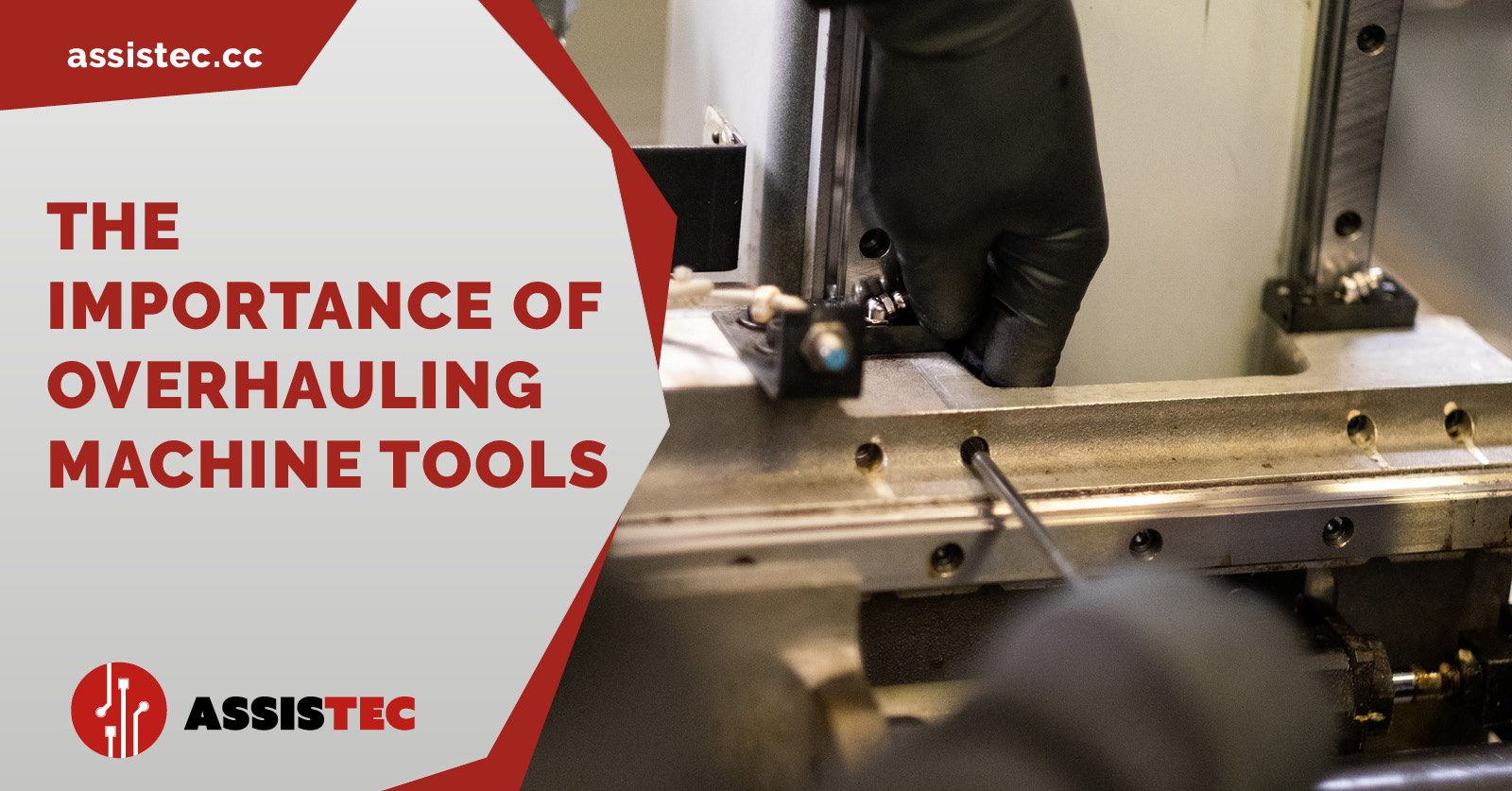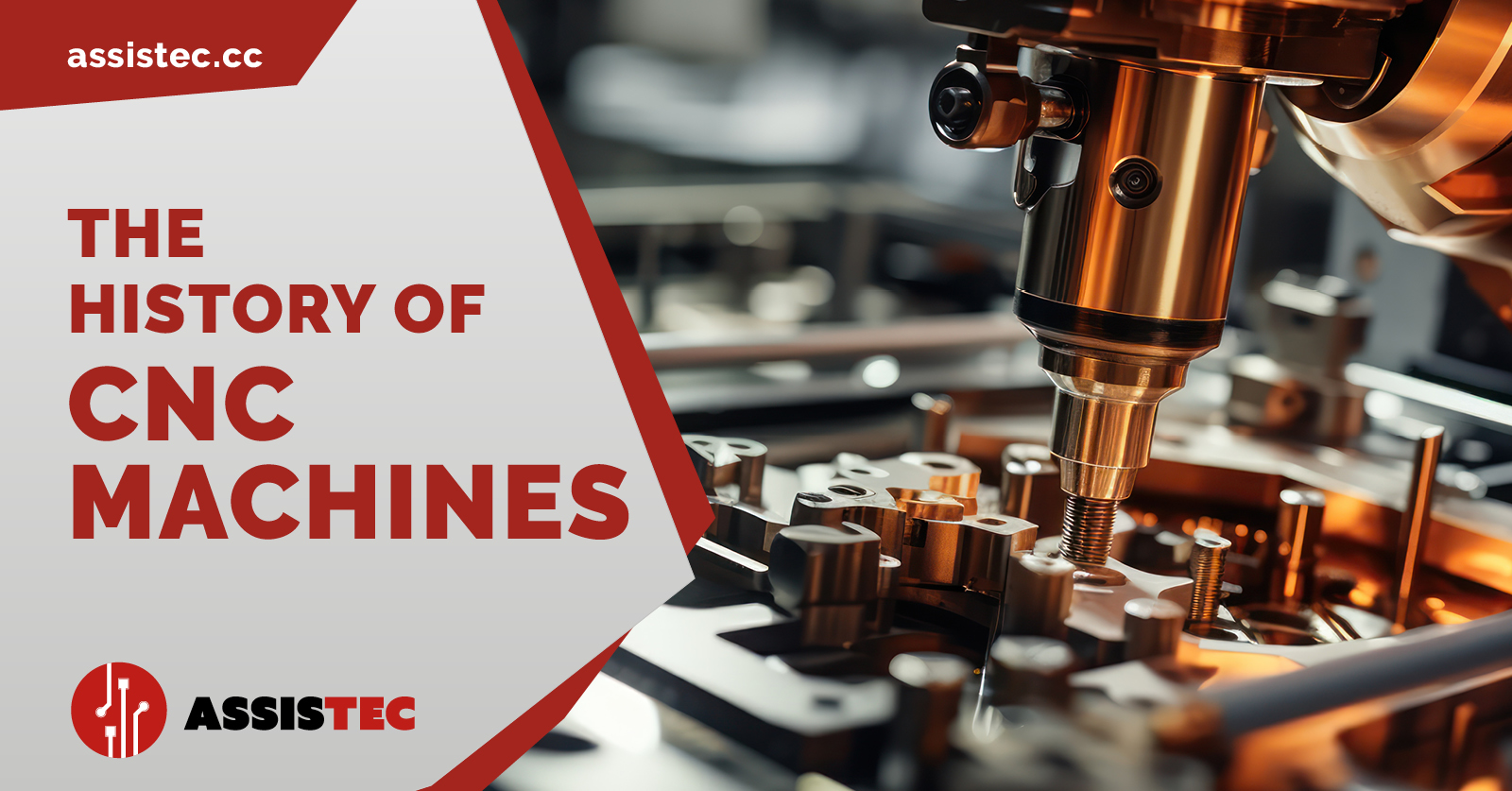The importance of CNC machine tool overhaul

CNC machine tool maintenance: a guarantee of optimal performance
The maintenance and overhaul of CNC machine tools should not be confused with their repair. While repair is requested by the customer when a machine malfunctions, causing an emergency that could also lead to a halt in production, an overhaul is a scheduled or planned intervention conducted in agreement with a technological partner. During an overhaul, the machine is completely disassembled, and each individual component is carefully analysed and, if necessary, replaced or repaired. Regular overhauls are essential to ensure efficiency, precision and longevity of CNC machines. This preventive and proactive approach enables the resolution of minor issues before they cause serious damage.
What is retrofitting?
Retrofitting is a process that involves transforming or upgrading the existing machinery by replacing outdated and worn-out CNC components, drives and motors with the latest and state-of-the-art ones. Retrofitting CNC machines makes it possible not only to bring the system's performance back to its original state but also to improve it, eliminating the need for customers to purchase new machinery. For obsolete systems, retrofitting allows CNC machine tools to compete with more current ones in terms of productivity and precision.
Revamping for CNC machine renewal
The term "revamping" is frequently used to describe the process of reconstructing or renovating machine parts or entire industrial plants. What does it entail? It is a maintenance operation that focuses on overhauling mechanical parts of the plant and, in some cases, even electronic control systems in order to achieve various goals, such as making the working environment safer, improving efficiency and rejuvenating the plant. Revamping includes both electromechanical and software interventions to extend the productive life of a CNC machine that is either about to become obsolete or has already become obsolete.
Spindle and electro-spindle overhaul
Spindles and electro-spindles are critical components of a CNC machine tool. They play a key role in ensuring precision and efficiency and are, unfortunately, often subject to wear and damage. This is why, if not monitored or overhauled on a regular basis, they have the potential to cause machine downtime or even more severe malfunctions. Performing overhauls at appropriate intervals allows for predicting the degradation of these components and consequently planning repairs or replacements in advance, thus avoiding future repair costs.
CNC machine tool overhaul services in Reggio Emilia
Are you looking for a reliable technological partner to overhaul and service your CNC machine tools? Then look no further than Assistec! Schedule regular overhauls of your equipment with us. We provide services like mechanical or electronic maintenance, repair of axis drives, spindles and motors, as well as the sale of spare parts (fuses, batteries and equipment for electrical cabinets). For more than 20 years, we have been developing and perfecting the best solutions to provide a comprehensive, all-round service capable of optimising the performance of any company's machine fleet, covering multiple brands such as Fanuc and Mitsubishi.
Don't wait for a breakdown; be proactive in solving potential issues! Contact us or call +39 0522989436 for more information. One of our operators will contact you with a personalised offer.
Recent Posts

-
Assistec is your partner with over 25 years of experience in full service for CNC machine tools, offering both electronic and mechanical technical support. Our main objective is to minimise machine downtime, ensuring a rapid return to production and an efficient return on investment.
CNC electronic support services: rapid diagnosis and effective solutions
Our electronic service on CNC machine tools is characterised by a comprehensive service that begins with a thorough prior telephone diagnosis by our service department. This initial phase is crucial to quickly understand the nature of the problem. Thanks to our well-stocked electronic spare parts warehouse, we are often able to resolve the fault already during the first technical intervention.
-
MECSPE 2025 is one of Europe's leading trade fairs dedicated to innovation in the manufacturing industry. It is a crucial event for companies that want to stay up-to-date with the latest technologies, solutions and trends in the industry.
Over the years, MECSPE has helped transform artisanal processes into large-scale precision industrial systems. Today, the show serves as a meeting point for machinery manufacturers, technology suppliers, system integrators, and end users, creating an ideal environment for networking and knowledge exchange.
MECSPE is essential to discover how to automate and digitise production processes, improve efficiency, reduce costs and increase competitiveness. In this context, Assistec has decided to play a leading role once again, confirming its presence also in the 2025 edition.
-
Numerically controlled (CNC) machines represent one of the most important technological innovations of the modern industrial era.
Their ability to automate and standardise complex operations has changed the face of manufacturing, transforming craft processes into large-scale industrial precision systems.
The spread of CNC machines has made it possible to reduce human error, increase productivity and, above all, guarantee repeatability of machining operations that would otherwise have been impossible. This has proved particularly crucial in sectors where precision, efficiency and speed are vital, such as aerospace, automotive, precision engineering and medical device manufacturing.
One of the main reasons for the success of CNC machines is their ability to perform tasks with extreme precision that previously required the manual intervention of skilled workers.
With CNCs, on the other hand, once the machining has been programmed, the machine can perform an infinite sequence of operations without loss of precision, solving problems of variability and improving the quality of the finished product.
At this point, the question might arise: when did CNC machines originate and how did they reach this level of sophistication?




